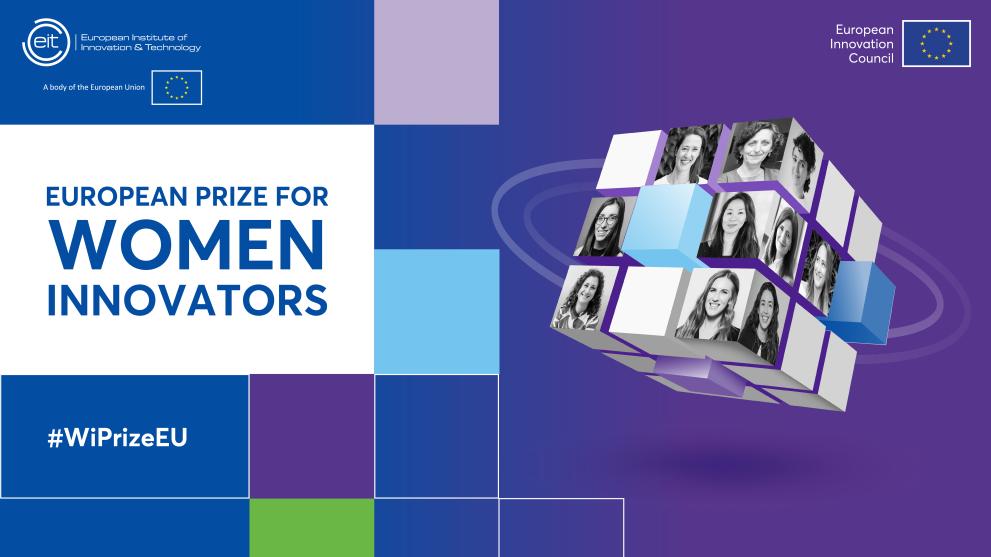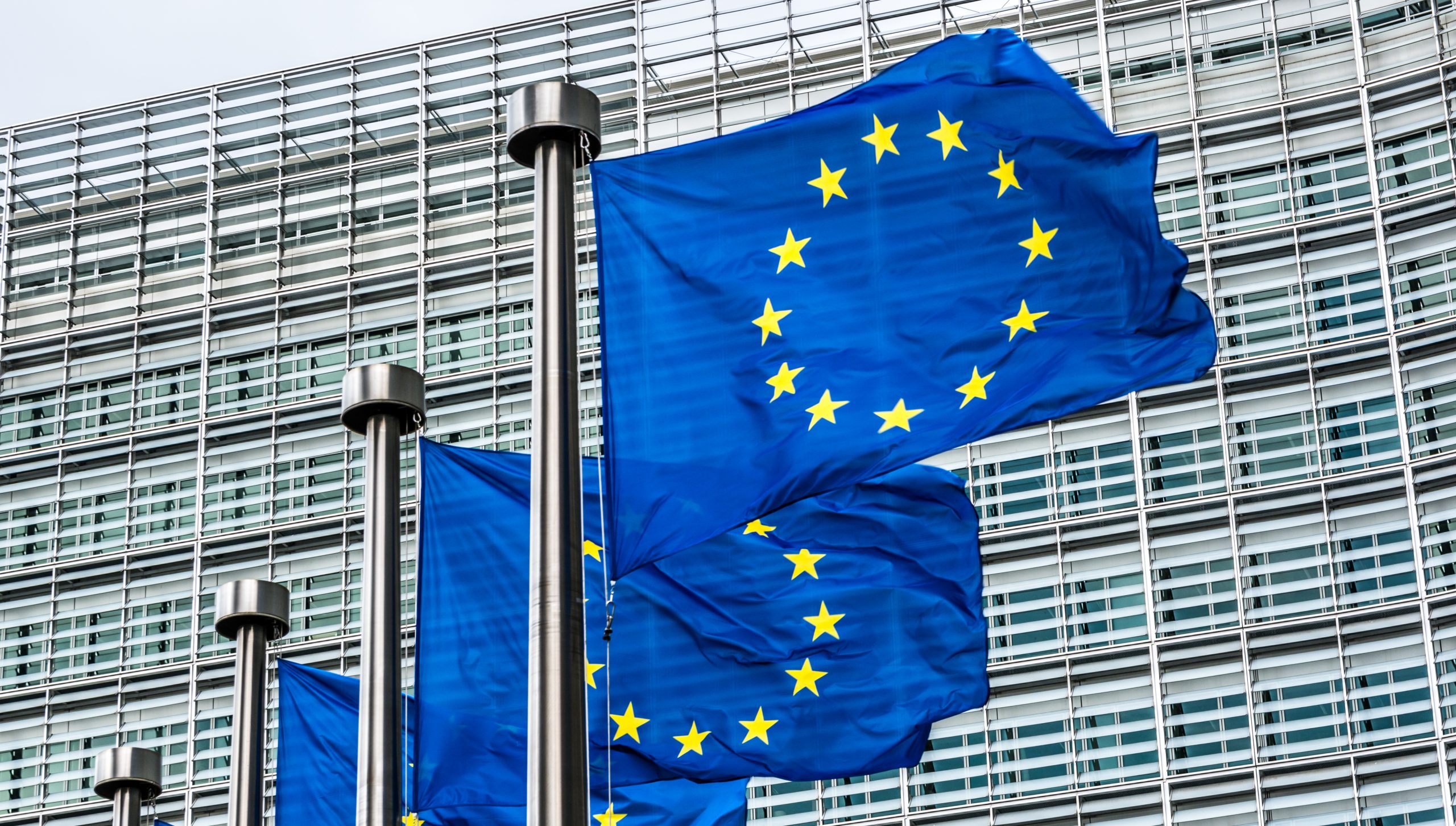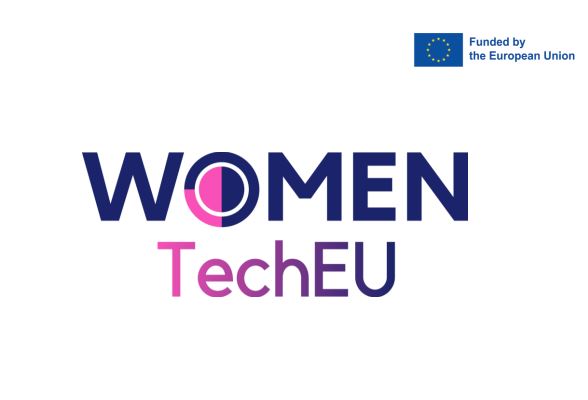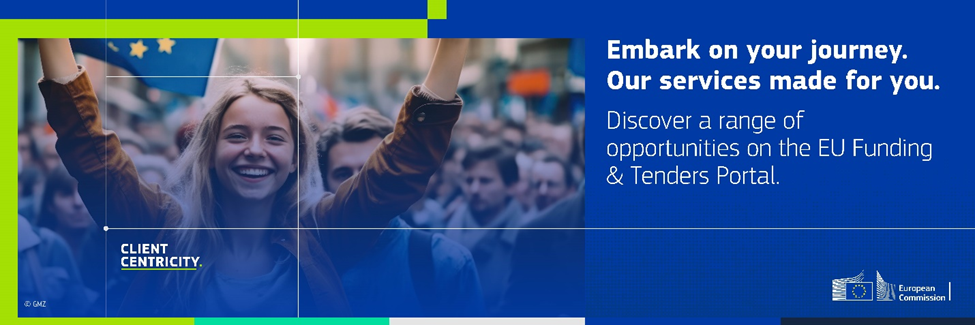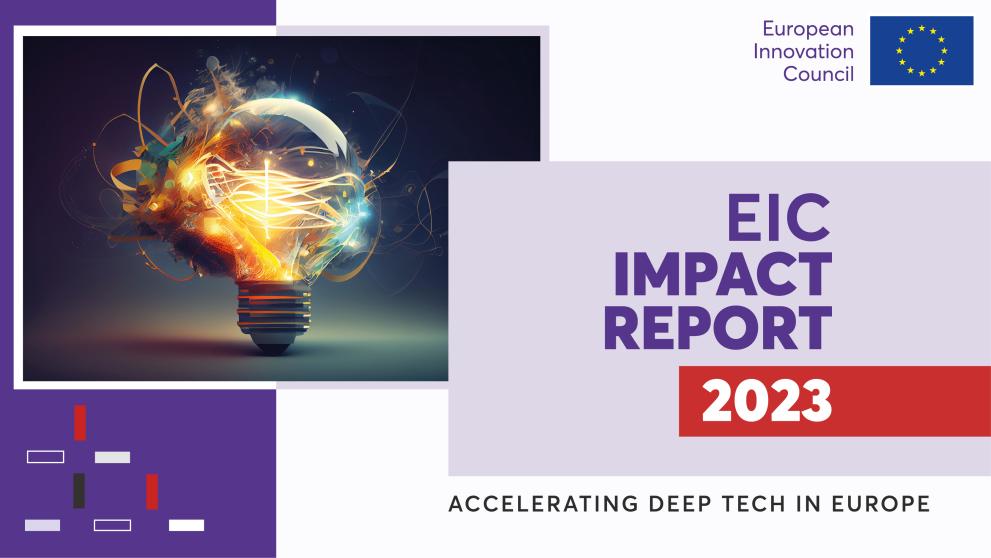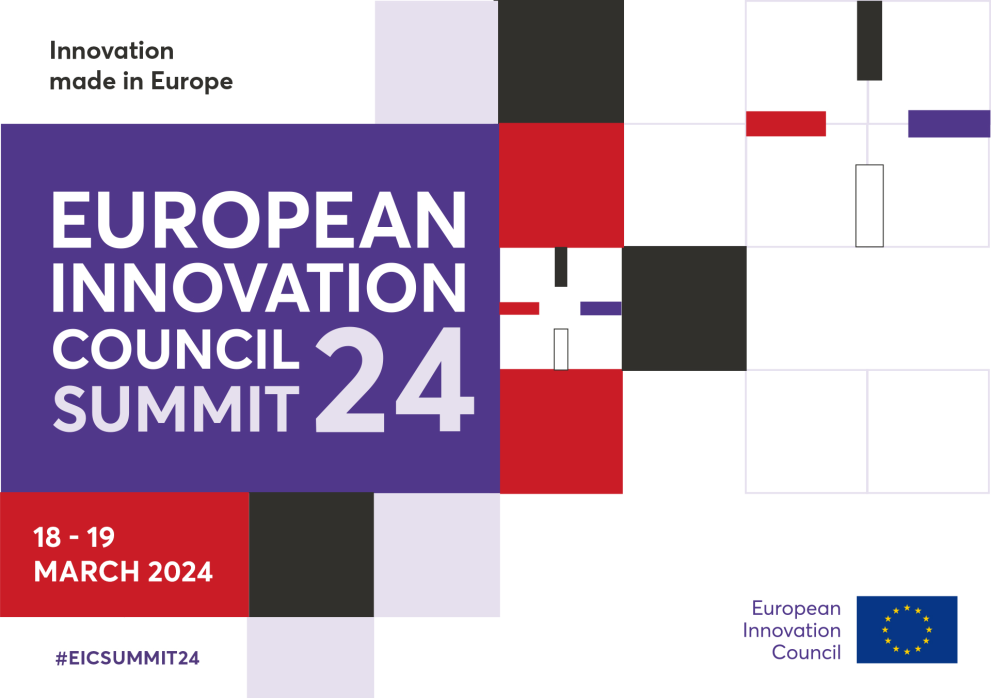The 2025 European Prize for Women Innovators Now Open
The 2025 European Prize for Women Innovators
The European Innovation Council (EIC) and the European Institute of Innovation and Technology (EIT) have announced the 2025 European Prize for Women Innovators, highlighting the extraordinary contributions of women entrepreneurs who drive impactful innovation. This prestigious award seeks to recognise and amplify the achievements of women innovators, encouraging gender equality in business and technology.
Categories and Prizes
The 2025 edition features three main categories:
- EIC Women Innovators: This category is open to women Founders or Co-founders of companies from EU Member States and Associated Countries. The top three winners will receive prizes of €100,000, €70,000, and €50,000 respectively.
- EIC Rising Innovators: Targeted at emerging innovators under the age of 35, this category also awards three prizes: €50,000, €30,000, and €20,000.
- EIT Women Leadership: This category focuses on women with a direct link to the EIT Community. Similar to the Rising Innovators, the top three will be awarded €50,000, €30,000, and €20,000.
These prizes are designed to provide substantial support to women who are making significant strides in innovation and entrepreneurship.
Key Dates and Application Process
- Online Info-session: Scheduled for 5th July 2024 (11:00am-12:00pm CEST), this session will provide detailed information about the application process.
- Application Deadline: All applications must be submitted by 25th September 2024 at 5.00pm CEST.
- Applicants must submit their entries through the Funding & Tenders Portal, ensuring they meet the criteria specified in the Rules of the Contest.
Promoting Gender Equality in Innovation
Iliana Ivanova, Commissioner for Innovation, Research, Culture, Education, and Youth, emphasises that the European Prize for Women Innovators showcases the ingenuity and leadership of women in the innovation sector. This initiative celebrates their achievements and also sets them as role models, promoting gender equality in the fields of technology and business.
Addressing Systemic Barriers
Despite the growing recognition of women innovators, systemic barriers still exist that hinder their full participation in the tech and business sectors. The EIC and EIT are committed to addressing these challenges by providing platforms and resources that support women-led companies and innovations. By doing so, they aim to foster an inclusive environment that empowers women to contribute significantly to the economy and society.
How to Get Involved
For those interested in applying, detailed information and resources are available on the European Prize for Women Innovators webpage. The application process is straightforward, and support is provided through various channels to ensure that potential applicants have all the necessary information.
New Innovative Health Initiative Call for Proposals
Exploring IHI Call 8: A New Horizon for Health Innovation
The Innovative Health Initiative (IHI) has launched its eighth call for proposals, focusing on pivotal areas in health research and innovation. This call aims to foster collaborative projects that address pressing health challenges through cutting-edge science and technology. Here’s a comprehensive look at what IHI Call 8 entails and how interested parties can get involved.
Key Focus Areas of IHI Call 8
IHI Call 8 is structured around four main topics:
- Cardiovascular Disease: This topic seeks innovative city-based approaches to reducing cardiovascular mortality across Europe. The emphasis is on implementing scalable and sustainable solutions that can be integrated into urban healthcare systems to improve cardiovascular health outcomes.
- Osteoarthritis: Utilising big data analytics, this topic aims to develop novel endpoints for osteoarthritis. By leveraging vast amounts of data, the goal is to enhance the understanding of disease progression and treatment efficacy, ultimately improving patient care.
- Regulatory Sandboxes: This topic involves modelling regulatory sandbox mechanisms. These sandboxes are controlled environments where innovative health technologies can be tested and validated under regulatory supervision, facilitating faster market entry for breakthrough innovations.
- Patient-Centred Endpoints: The focus here is on deriving patient-centred clinical-study endpoints using digital health technologies. This involves creating more personalised and precise measures of health outcomes that reflect the real-world experiences and needs of patients.
Funding and Budget
The total indicative budget for IHI Call 8 is €96.6 million, with €47.6 million contributed by IHI and €49.0 million from industry and other contributing partners. This substantial funding emphasises the EU's commitment to advancing health innovation through collaborative research.
Application Process and Deadlines
IHI Call 8 follows a two-stage application process:
- Stage 1: Short proposal submission deadline is on 10th October 2024, at 17:00 Brussels time.
- Stage 2: Full proposal submission deadline is on 23rd April 2025, at 17:00 Brussels time.
Applicants must submit their proposals via the Funding and Tenders Portal, ensuring they have an EU Login account, and their organisation is registered as a beneficiary.
Finding Partners
Collaboration is at the heart of IHI Call 8. To facilitate the formation of consortia, IHI provides resources through the IHI Call Days platform, where potential partners can connect, schedule meetings, and seek advice on forming robust partnerships. This platform remains active until the call deadline, offering continuous support for networking and collaboration.
Additional Resources and Support
Prospective applicants are encouraged to consult the detailed call documents available on the IHI website and the Funding and Tenders Portal. These documents include the guide for applicants, which provides crucial information on proposal preparation and submission. Additionally, IHI offers info sessions and various support mechanisms to assist applicants throughout the process.
Emphasis on Inclusivity and Innovation
IHI Call 8 is designed to be inclusive, inviting participation from a broad range of stakeholders, including SMEs, academic institutions, and industry partners. The focus on digital health technologies, big data analytics, and regulatory innovation reflects a commitment to embracing cutting-edge solutions that address contemporary health challenges.
What Next
For a Free consultation to discuss your project, contact RedKnight today.
Shaping the tenth framework programme (FP10)
Member States Advocate for Greater Influence in Shaping FP10
The tenth framework programme (FP10) for research and innovation in the European Union is garnering significant attention from member states who are calling for a more prominent role in its strategic planning. This development follows the adoption of a new opinion paper by a special task force of the European Research Area and Innovation Committee (ERAC). The paper emphasises the need for a stable and predictable funding framework and the inclusion of Collaborative Research Actions to support basic research.
A Call for Enhanced Strategic Involvement
The task force's recommendations reflect a broader desire among EU governments to have a more substantial say in setting the priorities for FP10. This includes making strategic choices that align with national and regional research goals, thereby leveraging national, regional, and private investments more effectively. The opinion suggests that a more consultative approach involving member states and stakeholders could enhance the programme's relevance and impact.
Addressing the Funding Issue
While the opinion paper does not specify a budget, it highlights the importance of a stable financial framework for research and innovation. This is crucial to ensure the success of FP10 and maintain its competitive edge globally. However, the absence of specific budget recommendations has drawn criticism from various quarters. Kamila Kozirog of the European University Association (EUA) and Mattias Björnmalm of CESAER highlighted the missed opportunity to advocate for increased funding. Both stress the necessity of achieving the 3% GDP target for research and innovation, with a public effort of 1.25%.
Simplification and Inclusivity in Funding Mechanisms
The task force advocates for simplifying the structure of Pillar II, which currently includes calls for Research and Innovation Actions and Innovation Actions for higher Technology Readiness Levels. By adding Research Actions, FP10 could make it clearer that Pillar II is also dedicated to research, not just innovation-focused projects. This aligns with calls from the League of European Research Universities (LERU) for more simplification in grant applications.
Additionally, the task force recommends evaluations of the Widening measures aimed at closing the east-west gap in research capabilities, and the European Institute of Innovation and Technology (EIT). The opinion also suggests phasing out instruments that are no longer relevant, though it does not specify which ones.
Positive Views and Constructive Criticism
The European Research Council (ERC) and Marie Skłodowska-Curie Actions (MSCA) receive positive mentions for their roles in supporting career development and breakthrough research. The European Innovation Council (EIC) is also praised for addressing gaps between research excellence and market transformation. However, there is a recommendation to move "Missions" out of FP10, as their objectives extend beyond the programme’s scope.
Stakeholder and SME Involvement
The task force stresses the importance of involving stakeholder organisations in the planning and oversight of FP10. While this move is supported by many, including EUA and CESAER, concerns remain about the potential for increased member state involvement to slow down priority setting. Moreover, acknowledging the critical role of SMEs, the task force suggests exploring the possibility of lowering their financial contributions in certain partnerships.
Beyond EU Borders
A continent-wide approach and faster association processes for neighbouring countries sharing EU values are prioritised to bolster European research and innovation. This includes swift associations with countries like Switzerland to leverage the full research and innovation capacity of Europe.
Towards a Single Market for Knowledge
The opinion supports the concept of a "single market for knowledge" and the idea of research and innovation as a "fifth freedom," enabling the free movement of research, innovation, knowledge, and education. This vision, proposed by former Italian Prime Minister Enrico Letta, aims to position Europe as a global leader in research and innovation.
Conclusion
The call for a more strategic role in shaping FP10 highlights the evolving landscape of European research and innovation policy. By addressing funding stability, simplifying mechanisms, and enhancing stakeholder involvement, FP10 aims to build on the successes of its predecessors while adapting to new challenges. The collaborative approach and strategic investments envisaged in FP10 could pave the way for ground breaking advancements and sustained economic growth in the EU.
Discovering the Eureka Eurostars Programme
The Eureka Eurostars programme is co-funded by the European Union through Horizon Europe. It aims to foster transnational innovation by providing significant funding to R&D projects that seek to commercialise novel products, processes, or services with a civilian purpose.
What is the Eurostars Programme?
Eurostars is recognised as the largest international funding programme dedicated to supporting innovative SMEs. It emphasises collaborative R&D projects, encouraging partnerships among SMEs, universities, and research centres across 37 participating countries. Even organisations from non-participating countries are welcomed to join a Eurostars consortium, making it a truly global initiative.
The programme's core objective is to bolster projects led by innovative SMEs, ensuring they have the resources and support necessary to transform ground breaking ideas into market-ready solutions. Each year, the programme facilitates approximately €250 million in public-private investment, funding around 680 organisations.
Why Choose Eurostars?
Participating in Eurostars offers numerous advantages:
- Access to Public Funding: Successful applicants receive substantial grants from their national funding bodies, significantly offsetting R&D costs.
- International Network: Participants join a growing network of SMEs, universities, and research centres, fostering long-term relationships and collaborative opportunities.
- Expert Support: The programme provides access to a network of industry experts, enhancing the quality and impact of R&D projects.
- Market Expansion: Many companies experience a 15% increase in annual turnover, with 69% entering new markets and 68% improving their market share.
- Visibility and Credibility: Participation boosts the visibility of organizations within their specialist fields, often leading to enhanced perceptions from private investors.
Competitive Edge
Despite the competitive nature of Eurostars, the average success rate is high in comparison with other comparable programmes, averaging at 29%. The submission and evaluation processes are centralised and transparent, ensuring all applications are judged fairly by industry experts.
Eurostars is not just about funding; it is about creating a sustainable ecosystem where R&D relationships evolve into lasting business partnerships. The programme's emphasis on market-driven innovation means that projects are not only scientifically sound but also commercially viable.
Business Benefits Beyond Funding
Participation in Eurostars often leads to transformative outcomes for businesses. Apart from financial support, companies benefit from increased market visibility and improved business relationships. The statistics speak for themselves: companies involved in Eurostars projects report significant market expansion and enhanced technological capabilities.
Moreover, the programme's emphasis on collaboration fosters a culture of innovation, pushing companies to explore new ideas and markets. This collaborative spirit is crucial in today’s rapidly evolving technological landscape, where staying ahead of the curve often means joining forces with like-minded innovators.
How to Get Involved
The process to apply for Eurostars is straightforward but rigorous. Interested parties must form a consortium with at least one other independent entity from a participating country. The innovative SME must be the primary applicant and project leader. The consortium can include other SMEs, large companies, universities, and research organisations (each country operates its own eligibility criteria, so it is imperative to read the guidelines for each participating country).
The next deadline for Eurostars applications is 12th September 2024. Prospective applicants should begin preparations well in advance to ensure their proposals are robust and comprehensive. For a free consultation to discuss your project, contact RedKnight today.
EU's AI Strategy Falls Short
The European Court of Auditors (ECA) has issued a critical report on the European Commission's (EC) strategy for artificial intelligence (AI), highlighting significant shortfalls. The report reveals that the EU underspent on AI by €600 million due to delays in the 2021 launch of Horizon Europe.
Key Failings Identified
The ECA's audit identifies several key issues that have hindered the EU's AI strategy:
- Lack of Post-Project Checks: There were insufficient mechanisms to monitor projects after their completion.
- Fragmented Management: A disorganised array of departments and agencies were responsible for AI policy, leading to inefficiencies.
- Inadequate Performance Indicators: The EC lacked an accurate overview of funded AI projects, impeding effective monitoring and evaluation.
Mihails Kozlovs, the ECA member who led the review, emphasised the need for the EC to enhance its focus on delivering results. "More than five years after adopting the EU AI plan, weaknesses in implementation and performance monitoring are still evident," he stated at a press conference.
EU Commission's Defence
In response, the EC defended its record, rejecting many of the ECA's proposals. The EC highlighted the establishment of the European AI Office, which aims to enforce the new AI Act and bolster support schemes. Despite these advancements, the ECA's findings come at a crucial time, as the EU continues to trail the US and China in AI development, particularly in patents and private investment.
Comparative Investment Figures
According to the Organisation for Economic Co-operation and Development, the US led in AI venture capital funding in 2023 with €55 billion, followed by China with €18 billion, and the EU with just €8 billion - a significant drop from 2022.
Historical Context and Strategy Implementation
The audit traces back to 2018 when European governments began releasing ambitious AI plans. The EC’s strategy included significant investments through the Horizon 2020 and Horizon Europe programs. While nearly meeting its spending targets for 2018-2020, the EC fell short by €600 million for the 2021-22 period due to delays in Horizon Europe's adoption.
Expert Opinions
Robert Praas, an AI specialist at the CEPS think tank, deemed the audit an "accurate assessment" of the EU's slow progress in AI innovation. He attributed this to a gap between political ambition and implementation capability, suggesting that the EU's regulatory focus hindered its innovation potential.
Coordination and Fragmentation Issues
The ECA pointed out the absence of a central coordinating body for AI projects, leading to overlapping and fragmented efforts. For instance, three different AI taxonomy projects were funded by various EU bodies without coordination, exemplifying the management inefficiencies.
Performance and Exploitation Challenges
The audit highlighted that while Horizon projects were monitored during their lifetime, post-completion checks were lacking. In many cases, research did not translate into commercial applications. A cybersecurity project on autonomous cars, for instance, failed to commercialise despite an extensive 117-page exploitation plan.
Furthermore, the audit found that per €10 million spent on AI in Horizon 2020, only 0.65 patents were applied for, well below targets.
EC’s Response to Recommendations
The EC agreed to update its AI investment targets considering the rise of generative AI but rejected the ECA's calls for a new framework for tagging and tracking AI financial support, citing cost and burden concerns. It also dismissed the need for AI-specific performance targets, arguing that existing indicators under Horizon Europe and Digital Europe were sufficient given the fast-evolving nature of AI technologies.
The ECA’s report highlights the need for improved coordination, monitoring, and strategic focus if the EU is to enhance its competitive standing in the global AI landscape.
Empowering Women in Deep Tech: The Women TechEU Project Launches
The Women TechEU project is revolutionising support for women-led early-stage start-ups in the deep tech sector. This initiative is set to empower 160 talented female entrepreneurs from across the European Union and associated Horizon Europe countries, providing them with the tools and resources needed to excel as leaders in deep tech innovation.
Each selected entrepreneur will benefit from a substantial €75,000 grant, which offers non-diluting finance, meaning they won't have to give up any equity in their company. This financial support is complemented by a personalized business development program designed to foster growth and leadership in the deep tech field.
Building on the success of the earlier Women TechEU scheme managed by the European Innovation Council and SMEs Executive Agency (EISMEA) during 2021 and 2022, the project has now evolved into a full-scale cascade funding initiative. It is currently run by a consortium comprising diverse players from the EU's innovation ecosystem, including representatives from women entrepreneurs' groups and investors.
Over the next two years, the project will distribute a total of €12 million in non-diluting finance through four competitive calls. Each cohort of successful applicants will gain access to a suite of business development services over a six-month period. These services are designed to support the entrepreneurs in scaling their businesses effectively.
Key performance indicators (KPIs) will be developed collaboratively between the entrepreneurs and their coaches. Regular check-ins will ensure continuous progress and adaptation, preparing these start-ups for potential application to the prestigious EIC Accelerator scheme.
This initiative not only provides substantial financial backing but also creates a supportive ecosystem tailored to the unique needs of women in the high-stakes world of deep tech. The Women TechEU project is paving the way for a new generation of female leaders in technology and innovation.
The next deadline is on Monday, 20th May 2024. More information about the competition can be found here.
New release of EU Funding & Tenders Portal launched
The European Commission (EC) recently announced the launch of the latest iteration of the EU Funding & Tenders Portal, marking a significant milestone in its journey to enhance user experience. Drawing on the invaluable feedback from a diverse community of over 1.5 million users, which includes EU funding applicants, beneficiaries, tenderers, and experts, the EC has worked to implement improvements that cater to user needs and preferences.
This new release introduces a range of enhancements aimed at providing users with a more intuitive and immersive experience. Among the notable updates are refreshed interfaces across the Portal, with the homepage now prominently showcasing the EC's core services and functionalities. Powered by state-of-the-art technology, the funding page search engine has been revamped to deliver more precise and relevant results, ensuring users can easily discover funding opportunities that align with their interests and objectives.
For logged-in users, the EC has introduced affinity-based recommendations of 'calls for proposals,' tailored to their specific profile and preferences. This personalised approach ensures that users never miss out on relevant opportunities that could take their project forward. Additionally, to further streamline navigation, the EC has integrated a global search feature at the top right corner of the Portal, allowing users to quickly access the information with ease.
The EC’s commitment to continuous improvement means it is constantly striving to enhance user experience on the EU Funding & Tenders Portal. To provide a comprehensive overview of all the latest updates and novelties, interested stakeholders are invited to watch a 3 minute informative video, which highlights the key enhancements and previews what's to come in the future.
The European Innovation Council Impact Report 2023: a €70 billion deep-tech portfolio
The European Innovation Council (EIC) has recently released its annual Impact Report for 2023, showcasing its pivotal role in nurturing deep tech innovation throughout Europe. The report emphasises the EIC's status as a key investor in European innovation, with investments exceeding €1.2 billion in 2023 alone. Notably, these investments have catalysed an additional €3.5 billion in capital, demonstrating the EIC's substantial leverage in mobilising funds for ground breaking projects.
One of the report's key highlights is the significant growth in the total portfolio value of enterprises supported by the EIC, which has grown to nearly €70 billion. This exponential increase reflects the EIC's success in identifying and supporting high-potential start ups and scaleups in the deep tech sector.
Iliana Ivanova, Commissioner for Innovation, Research, Culture, Education and Youth, has lauded the EIC for its transformative impact on Europe's innovation landscape, emphasising the creation of a robust ecosystem conducive to critical technologies, which is vital for maintaining Europe's competitiveness on the global stage. Commissioner Ivanova said:
“The European Innovation Council (EIC) has emerged as a game-changer in supporting deep tech innovation in Europe. This Impact Report shows how the EIC supports the growth of high potential startups while at the same time building a European community of deep tech investors. This is crucial to ensuring the future of our companies and strengthening EU leadership in critical technologies.”
Moreover, the report highlights the EIC's role in driving the growth of supported companies, leading to substantial increases in valuation, employment rates, and revenue generation. Additionally, the EIC has played a crucial role in fostering unique innovations and facilitating strategic partnerships, further solidifying its position as a driving force in deep tech innovation across the continent.
Key impacts to date of the EIC include:
- An overall portfolio value of EIC supported companies of nearly €70 billion, an increase of over €20 billion in just over a year;
- Impact on scaling up companies, with over 150 “centaurs” (valuation above of €100 million), 15 of whom have a valuation above €500 million including 8 over €1 billion (unicorns);
- EIC companies averaging 35% employment growth and 68% revenue growth in the first 2 years following EIC support;
- Attracting over €12 billion of follow-on investments, primarily from venture capital, corporates, and national promotional banks.
- 1686 unique innovations generated from EIC research projects (Pathfinder and predecessors);
- EIC companies and projects matched to corporates, procurers and potential investors resulting in over 125 signed deals.
For those interested in delving deeper into the comprehensive document which offers insights into the EIC's activities, successes, and future directions, you can download it here: EIC Impact Report 2023. You can download the key impacts summary here: EIC Key Impacts 2023.
EIC Summit and R&I Week
The European Innovation Council Summit 2024, will take place on 18th and 19th March as part of the Research & Innovation week.
Celebrating the 40-year journey through the Research and Innovation Framework Programmes, the R&I Week 2024 will debate the future of R&I and shape the contribution to EU political priorities, in particular the EU Tech Sovereignty and Competitiveness.
Tuesday 19th March will be fully dedicated to EIC beneficiaries with workshops covering diverse issues for researchers and entrepreneurs, such as intellectual property rights, investments, or scaling up your company. Discover the full programme and list of speakers.
The R&I week also includes the Belgian Presidency event on Innovative Procurement, taking over from the EIC Summit on the late afternoon of 19 March and continuing until the afternoon of 20 March. After that, it’s the start of the Research and Innovation Days providing a full R&I related programme, closing at the end of 21st March.
To register, click here.
EIC Accelerator Updates
EIC Applicants that have received a ‘GO’ after submission of their short (Step 1) proposal can now familiarise themselves with the annexes in view of preparing their full application for the 13 March 2024 cut-off. These annexes include for example the simplified financial plan and equity needs, a detailed budget table for lump sum calculations and the ownership control declaration. In addition, ‘Part A’ of the full application form is being updated to ensure automatic collection of key data for the EIC, such as gender of the CEO/CTO/CSO of applicant companies, requested type of funding, and consent to share application data with EIC National Contact Points and the Enterprise Europe Network. This will further facilitate support to future applicants.
The updated Part A of the application form as well as all annexes are expected to be available on the Funding & Tenders Portal of the European Commission by mid February for eligible applicants who receive an automatic notification in the Funding and Tenders Portal with the submission links. In the meantime, applicants are advised to familiarise themselves with the application forms and annexes in preparation of their application, but to wait with uploading the forms until the final versions are available on the Funding and Tenders Portal.
Annexes for applicants to the EIC Accelerator full proposal:
Tpl_Annex_Mandatory data and consent (HE EIC Accelerator full application)
Tpl_Application Form (Part B) (HE EIC Accelerator full application)
Tpl_Detailed Budget Table (HE Lump Sum - EIC)
Tpl_Annex Ownership control declaration (HE EIC)
Tpl_Annex_Financial plan and equity needed (HE EIC Accelerator)

